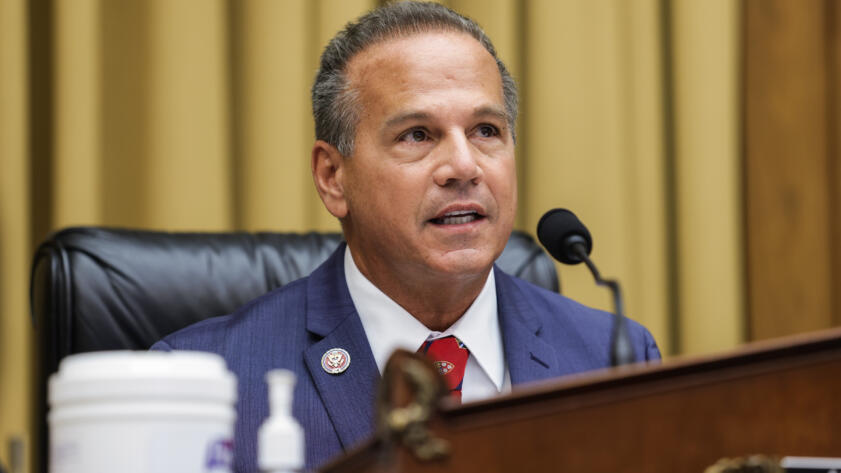In the wake of an investigation by The Markup that found that Amazon lists its own brands and exclusives above competing products with better ratings and more sales, members of the House Judiciary Committee sent a letter to Amazon saying the company’s representatives “may have lied to Congress” and demanding that the company send sworn statements and documents to “clarify” its practices regarding the development of its brands and their treatment in search results, by Nov. 1.
The letter cites The Markup’s investigation in detail, including our findings and a quote from a merchant. It asks the company to send a sworn response “to clarify the record as to how Amazon advantages its own products over products from other sellers in its search rankings, including through sponsored results that are undisclosed” and “an explanation as to why Amazon does not publicly label search results for brand-product listings as advertisements.”

Amazon’s Advantage
Amazon Puts Its Own “Brands” First Above Better-Rated Products
The online giant gives a leg up to hundreds of house brand and exclusive products that most people don’t know are connected to Amazon
The Markup found many Amazon brand and exclusive product listings were invisibly marked “sponsored” in the source code but tagged “featured from our brands” for the public. The company said these were neither ads nor search results but rather “merchandising” placements. A former Federal Trade Commission official told us these postings would be ads, even if the company didn’t pay for the space.
The letter was signed by Rep. David Cicilline (D-RI), chair of the House Judiciary Committee antitrust subcommittee, and subcommittee members Reps. Ken Buck (R-CO), Matt Gaetz (R-FL), and Pramila Jayapal (D-WA). That subcommittee opened an investigation into Amazon, Alphabet, Apple, and Facebook in June 2019 that culminated in a lengthy report last year. The letter is also signed by Rep. Jerrold Nadler (D-NY), the chair of the House Judiciary Committee.
The lawmakers also demanded a sworn clarification from Amazon about whether it uses third-party sellers’ data to develop its own line of products and for the company to release all documents related to a Reuters report last week about Amazon copying products and preferencing its brands in India.
“Amazon and its executives did not mislead the committee, and we have denied and sought to correct the record on the inaccurate media articles in question,” Brooke Oberwetter, senior PR manager at Amazon, said in an email. Amazon did not respond to dozens of questions from The Markup for this investigation, and we did not receive any correction requests from Amazon after publication.
Oberwetter also wrote that “we design our search experience to feature the items customers will want to purchase, regardless of whether they are offered by Amazon or one of our selling partners.”
That comment echoes Amazon’s previous denials to the committee during its antitrust investigation. Monday’s letter from lawmakers quotes several of Amazon’s previous denials that it favors its own products and cites the federal law that makes lying to Congress a crime.
“We strongly encourage you to make use of this opportunity to correct the record and provide the Committee with sworn, truthful, and accurate responses to this request,” the letter reads, “as we consider whether a referral of this matter to the Department of Justice for criminal investigation is appropriate.”
The legislators said The Markup’s and Reuters’ reporting is consistent with prior reporting from The Wall Street Journal. That article, based on interviews with more than a dozen former Amazon staffers, said Amazon used “information it collects from the site’s individual third-party sellers” to make business decisions on launching competing items, including deciding “how to price an item, which features to copy or whether to enter a product segment based on its earning potential.”
The Markup examined the search results for 3,492 popular internet product queries and looked closely at what Amazon placed in the first spot. We found that whether a product was from an Amazon brand or exclusive—a category Amazon refers to as “our brands”—could predict in seven out of 10 cases whether it would get the number one spot. Customer reviews and star ratings could not predict the winner much better than a coin toss.
A quarter of Amazon’s first-placed brands and exclusives had both lower ratings and fewer reviews than competitors.
Several sellers told The Markup in interviews that Amazon brands or exclusives created products like theirs and were always ranked first. They ended up selling their business or retreating from certain products as a result.
The e-commerce giant has registered trademarks for more than 150 brands and encourages companies and individuals to sell exclusively on the site, often promising them greater exposure in exchange for additional fees and the option to buy the brand at a predetermined price.
Sellers and e-commerce consultants told The Markup that the only way to rank well on the site is to spend tens of thousands of dollars a month on sponsored listings.
Amazon is under scrutiny from antitrust regulators around the world including the E.U., Canada, and India. In June, Cicilline and other members of Congress introduced a slate of anti-monopoly bills aimed at Big Tech, including the American Choice and Innovation Online Act, which seeks to prohibit platforms from preferencing their own products. Sens. Amy Klobuchar (D-MN) and Chuck Grassley (R-IA) announced on Oct. 14 that they plan to introduce a version of the bill.
A representative of the U.K. Competition and Markets Authority emailed The Markup on Monday saying they read the investigation “with great interest” as the findings are directly in line with its areas of inquiry.
The attorney general of Washington, D.C., Karl Racine, is suing Amazon over alleged antitrust violations and treatment of third-party sellers. After The Markup investigation published last week, he tweeted, “The company’s online retail sales market dominance is clear, and findings like this reinforce our concerns.”





